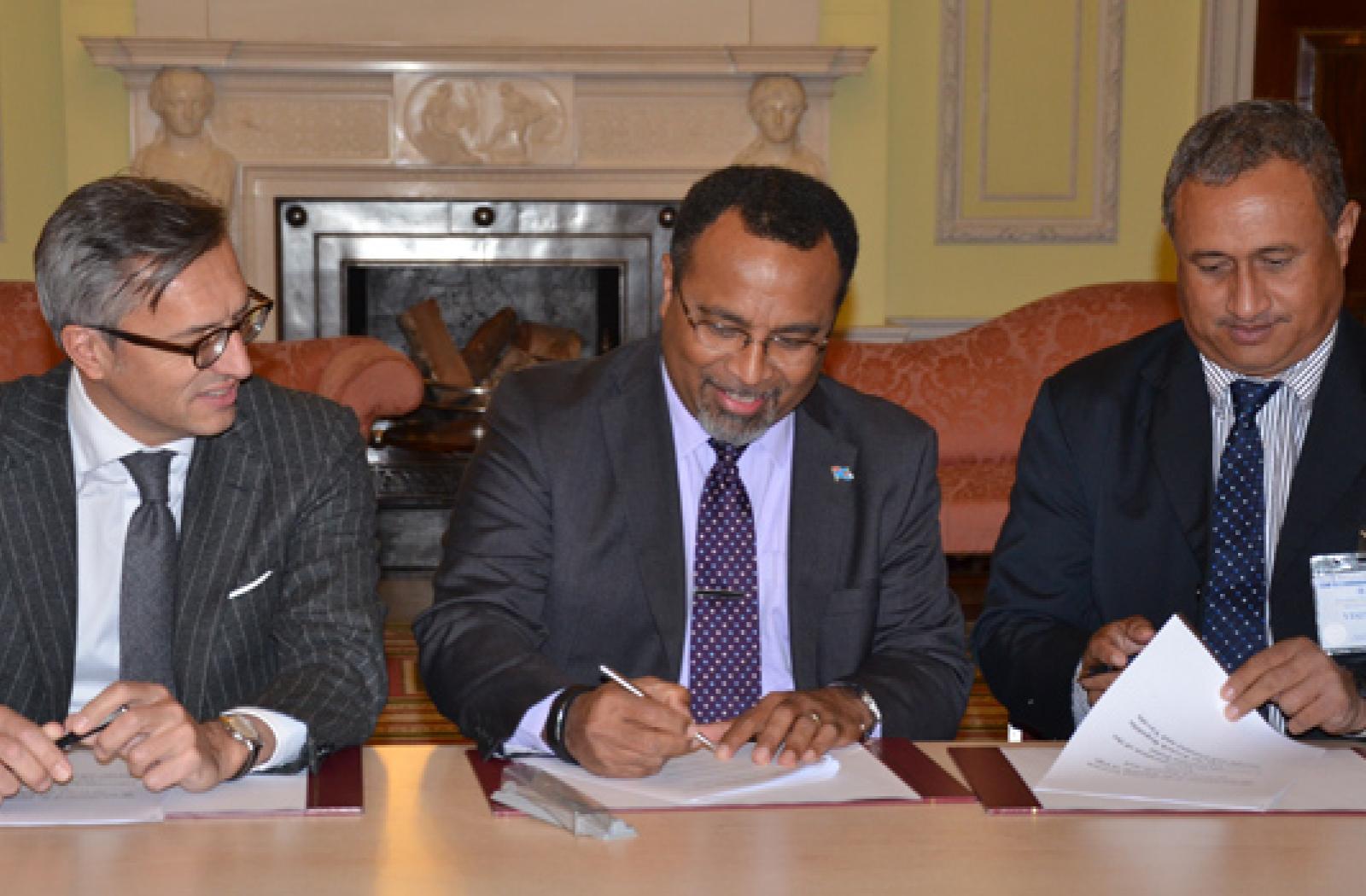An agreement between Fiji, Tuvalu and France over their maritime borders was brokered this week with support from the Commonwealth.

Deal will help curb illegal fishing and allow countries to assert rights to natural resources
An agreement between Fiji, Tuvalu and France over their maritime borders was brokered this week with support from the Commonwealth. The deal will help the countries to defend their waters from illegal fishing operations and provide clarity over rights to marine natural resources.
The technical agreement, signed on 9 December 2014 at the Commonwealth Secretariat’s headquarters in London, uses satellite data to pinpoint where the waters of Fiji, Tuvulu and the French territories of Wallis and Futuna meet.
A separate bilateral agreement was also signed the same day between Tuvalu and France covering the boundary between their two ocean territories.
“This is very good news for the inhabitants of these islands,” commented Head of the French delegation, Mr Pierre Boussaroque, representing the French Ministry of Foreign Affairs. “It is a way to protect their wealth and secure potential gains in the future.
“It will mean that we are absolutely sure about the exact boundary between the islands when it comes to fisheries, or when it comes to the implementation of rules for ships sailing in our maritime waters. Good fences make good friends.”
Head of Fiji’s delegation, Mr Solo Mara, who is High Commissioner to the United Kingdom, commented: “In countries where the maritime zones are not agreed upon, skippers can circumvent fisheries regulations because of the ambiguity. If our resources are being depleted by illegal means then our incomes are being lost.”
Under the United Nations Convention on the Law of the Sea, the standard ‘exclusive economic area’ belonging to a country is 200 nautical miles from its coast. Where island territories are in close proximity, diplomatic negotiations are needed to establish a border between the nations.
As well as helping the governments to sustainably manage their fishing resources by giving national authorities the legal basis for prosecute poachers, the two agreements will provide legal certainty over ownership rights in the event that mineral or hydrocarbon resources are discovered in these waters.
Joshua Brien, Head of Ocean Governance & Natural Resource Management at the Commonwealth Secretariat, said: “For over 30 years these boundaries have remained unsettled. Following the agreements reached today, all of the countries concerned are better positioned to manage their vast ocean space and lucrative natural resources including commercial fish stocks.”
Head of Tuvalu’s delegation, Mr Faatasi Malologa said the effort to clarify maritime boundaries has added significance given the impact of climate change. “If the sea levels are rising, then we in Tuvalu need to establish our sovereign rights. This will give us an entitlement if our islands become submerged.”
Both technical agreements were concluded with support from the Commonwealth Secretariat and the Secretariat of the Pacific Community. “The Commonwealth has played an important role in providing ancillary support to these negotiations in technical and legal areas,” Mr Malologa, representing Tuvalu’s Ministry of Natural Resources, added.
The Commonwealth Secretariat has provided assistance to its member countries on the delimitation of maritime boundaries and issues related to the law of the sea and the management of natural resources for over 25 years.
Support to member countries across the Pacific, Caribbean and Africa has resulted in successful submissions to the UN Commission on the Limits of the Continental Shelf, allowing governments to exercise sovereign rights over living and non-living natural resources on or under the seabed.



